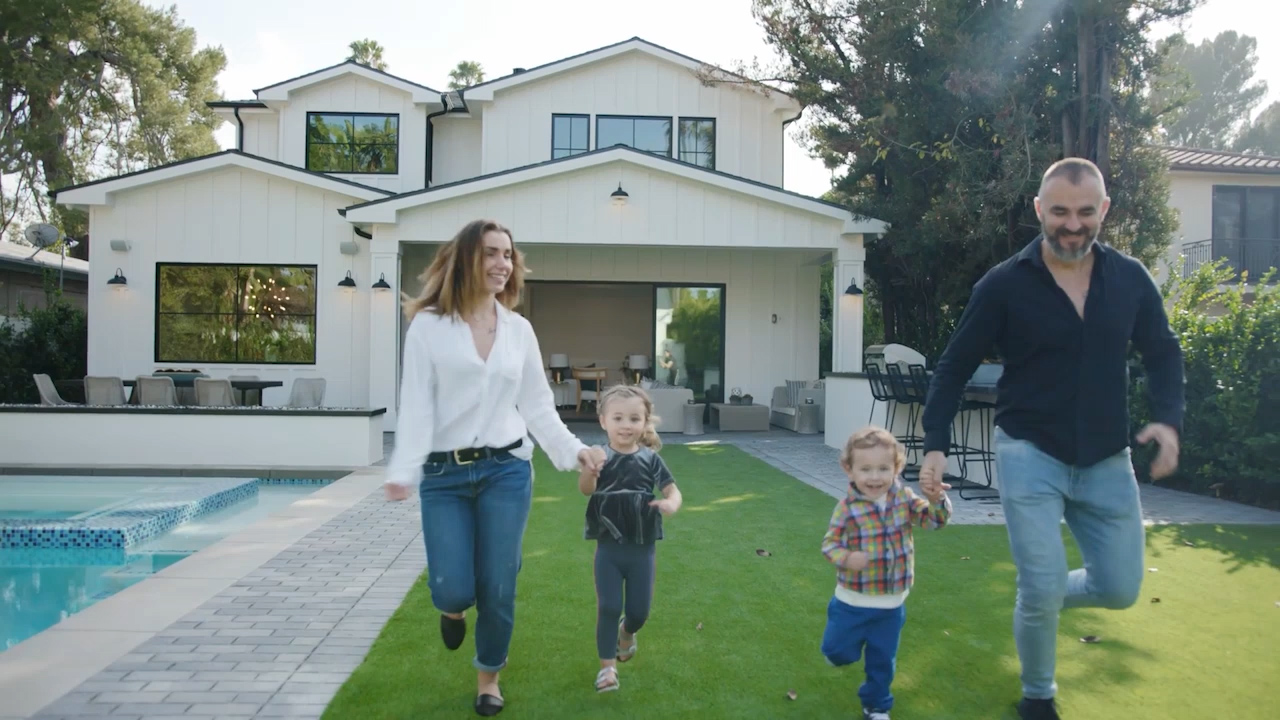

Why do I need home insurance?
Your home is your retreat. It’s the place where you and your family make happy memories, navigate the tough times, and build a life together. It’s your most expensive personal asset, and you want to have the right protection for your home and your possessions.
Life is unpredictable. Homeowners insurance gives you some control and alleviates the financial impact that is caused by a major loss. The agents at YourPolicy will clearly explain the different types of home insurance and find the best fit for your lifestyle. They can answer your questions and save you money. We streamline the process because we know that your needs are not the same as anyone else’s. That’s why we build “YourPolicy,” not their policy.

Does homeowners insurance cover just the house?
Homeowners insurance protects your largest asset, and so much more. The following information will give you an overview of the four different types of home insurance and the various protections it provides for you and your family.

Dwelling Coverage
This coverage helps pay to rebuild or repair the physical structure of your house in the event of a loss over which you have no control. These losses include, fire, wind, theft, lightning strike and more. Dwelling plans also cover attached structures like porches, as well as detached structures like sheds and garages. Plumbing, HVAC and other built-in systems and appliances are also covered. Your dwelling coverage should be for replacement cost (the amount it would cost to rebuild your home at current prices).

Personal Property
Personal property insurance covers your belongings, including furniture, clothing, sporting goods and electronics. It doesn’t matter where they are located when they sustain damage - they are covered. This plan will help you pay to repair or replace these items. There are two types of personal property coverage, (1) replacement cost, and (2) actual cash value. Replacement cost pays the value of the damaged items at the time of claim. Actual cash value factors in depreciation and will reimburse you for the current value of the item.

Personal Liability
Personal liability insurance is financial protection for you and your family. It pays claims for bodily injury and/or property damage sustained by others for which you or covered residents of your household are legally responsible. For example, if a guest falls and is injured on your property or your child accidentally throws a ball and breaks an expensive garden sculpture in your neighbour’s yard, you may be held legally responsible for damages.

Loss of Use
Loss of use coverage can help pay for reasonable housing and living expenses if a covered event makes your house temporarily uninhabitable during reconstruction or renovation. For example, if you are unable to stay in your home due to a natural disaster, fire, or other events over which you have no control, this coverage will pay for meals, lodging, animal boarding, and other expenses up to a predetermined limit.
The law doesn’t require you to have homeowners insurance; but, if you have a mortgage, your lender will require that you insure your property. It’s critical to understand exactly what is covered under your homeowners protection. If an event that is out of your control occurs, you want to know that you don’t have to worry about your coverage. Contact a YourPolicy agent as soon as possible. Our painless process will give you the assurance that you have everything you need when an unexpected event occurs. Call today!

Renter's Insurance
Renters insurance is a simple, affordable way to protect your personal property in a rented home, apartment or condo. Additionally, you’ll be protected from liability if someone is injured on your property. Renters insurance, also known as tenant insurance, is a type of coverage that protects your personal property when you’re renting. Your landlord typically has insurance to cover the building - renters insurance covers your losses in unexpected situations such as fire, sewer backup, or theft. A typical renters policy has three types of coverage: Personal Property, Liability and Additional Living Expenses. The cost of renters insurance can vary but it is one of the more affordable coverages. It’s based on the amount of coverage you need as well as your location and your credit score. The more items you want to protect, the higher your premiums will be. The amount is up to you.

Condo Insurance
Condo insurance is coverage that helps protect against losses and repair costs for a condominium unit. It provides protection for theft, vandalism, fire damage, water damage, and more. Liability insurance is also included in this coverage. Condominium insurance is essential even if your condominium association has their own coverage. Their insurance typically covers the condominium building, commonly owned property, and liability insurance for the association. A personal condominium policy protects your personal property and the interior of your unit. Condo association insurance generally stops after the exterior walls. That means that you are responsible not only for your personal property and liability but also for interior walls and fixtures. Another factor to consider is that mortgage lenders generally require you to purchase condo insurance to protect their financial interest during the length of your loan. Even if you’ve paid off your mortgage or purchased the property outright, you might still be on the hook for personal condo insurance because many HOAs require it. As with homeowners insurance, the law doesn’t require you to have condo insurance; but, if you have a mortgage, your lender will require that you insure your property. It’s critical to understand exactly what is covered under your condo protection.

Landlord Insurance
Landlord insurance is typically broken out into two categories: landlord property protection and landlord liability protection. Both are designed to protect you as the landlord from financial losses. Landlord property protection helps cover physical property damage of the home you are renting out while landlord liability protection aids you in the instance that a renter or tenant injures themselves while on your rental property. You may also want to add extra landlord coverages to ensure you are fully protected from unforeseen events such as vandalism or burglary.
You have questions. We have answers.
Common Home, Condo and Renters Insurance Questions.
Home insurance policies protect you from unexpected events ranging from weather damage to theft.
The limits on your policy should be high enough to cover the cost of rebuilding your home at current market rates. Be careful not to buy insurance based on your mortgage as it may not cover the cost of rebuilding.
Home insurance differs from state to state. It typically does not cover damages from natural disasters such as earthquakes, tornadoes and floods. You can, however, purchase policies to cover these events.
No. Home insurance is not tax deductible. The IRS will not allow you to itemize any insurance premiums, even if they are included in your mortgage payments.
A standard insurance policy may not be enough to replace high-value items such as expensive jewelry, art, or antiques. These items may need to be insured separately for coverage beyond a standard policy.
Your policy could cover either replacement cost or actual cash value. Actual cash value coverage takes depreciation into account, so you may receive less than originally declared. Replacement cost coverage can be more expensive but will reimburse you for the originally declared cost of your home and your belongings.
For the answers to more questions or to request a free home insurance quote, call our experts today at (866)903-1326




